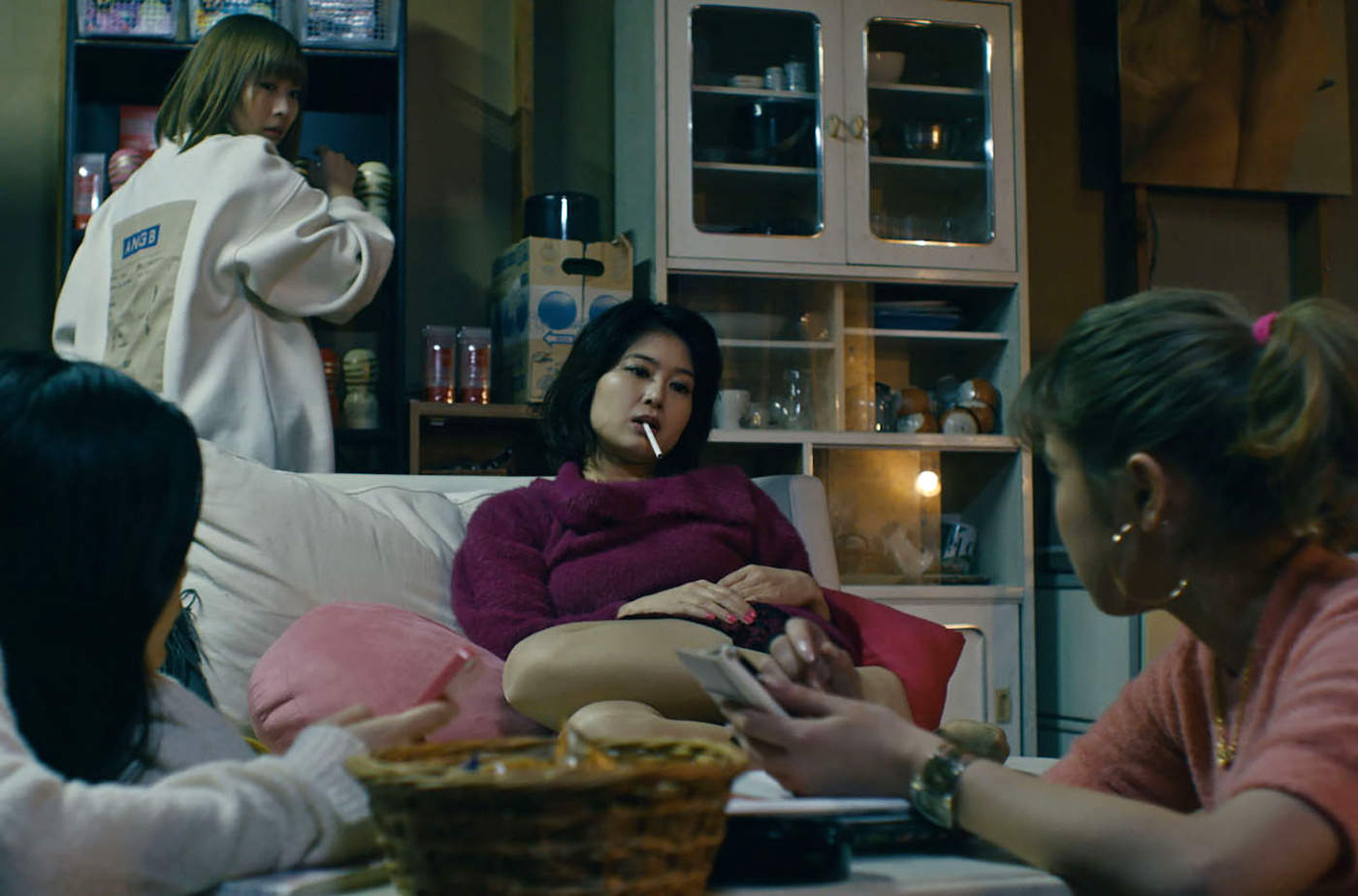On the fourth floor of an anonymous building, the lives of female escorts intersect as they wait for calls from their customers. Kano (Sairi Ito) has just joined the group. Quickly disillusioned, she nonetheless sticks around as an employee, managing bookings, cleaning up, and bearing witness to the lives of her coworkers. An eclectic group of women gravitate around the place, their lives “yet to be titled”, yet full of unspoken dreams, desires, heartbreaks and rivalries – all repressed in the face of the everyday misogyny inherent to the trade, and to Japanese society. (Fantasia Film Festival)
There are more than a few reviews of Yamada Kana’s debut feature which reference the legendary filmmaker Mizoguchi Kenji in comparing how it differs from the “tradition” of brothel-set movies in Japanese cinema, specifically in how it portrays sex workers with dignity despite their lower social status and stigma of their profession. Other genres have served up the hooker, the call girl, etc. for more exploitive purposes. As Japan Cuts writes: “Portraying an industry frequently exploited in Japanese media for objectifying scenes of titillation or abjection, Yamada shows sex workers’ dignity and desires amidst the misogyny and violence pervading society, updating the humanistic impulses of Kenji Mizoguchi to address the contemporary alienation of labor with humor and drama.” Though quite a mouthful, Yamada has essentially reframed the sex worker in her movie as no different from ordinary workers in the new economy–the original “gig worker” of “the world’s oldest profession”.
Founder of the Logic Theatre Company, Yamada has also directed several short films such as the award-winning Shinjuku Girl. The movie Life: Untitled is an adaption of her own stage play of the same name and thus the minimalist setting. But like Robert Altman’s Come Back to the 5 & Dime Jimmy Dean, Jimmy Dean, or Jojo Hideo’s Around the Edge of the Stand, a single setting can be carried by true-to-life dialogue which reveals the layers within each character and their relations with others. Being a playwright in her own right, this is Yamada’s forte. That she has also managed to expand the stage experience to the cinematic format without losing the essence of her play–and from all accounts with aplomb–in her debut feature is worthy of note. Interestingly enough she says brushing up on her skills as a stage director is what made her want to direct movies (from this Asian Movie Pulse interview). Such an interest in the ways a story can be told depending on the medium may separate Yamada from some of her peers.

In addition to the Tokyo International Film Festival, where it won the Tokyo Gemstone Award, Life: Untitled has also played at Fantasia Film Festival and the Bucheon International Fantastic Film Festival. Yamada currently has a few projects in development, but nothing soon on the way.

